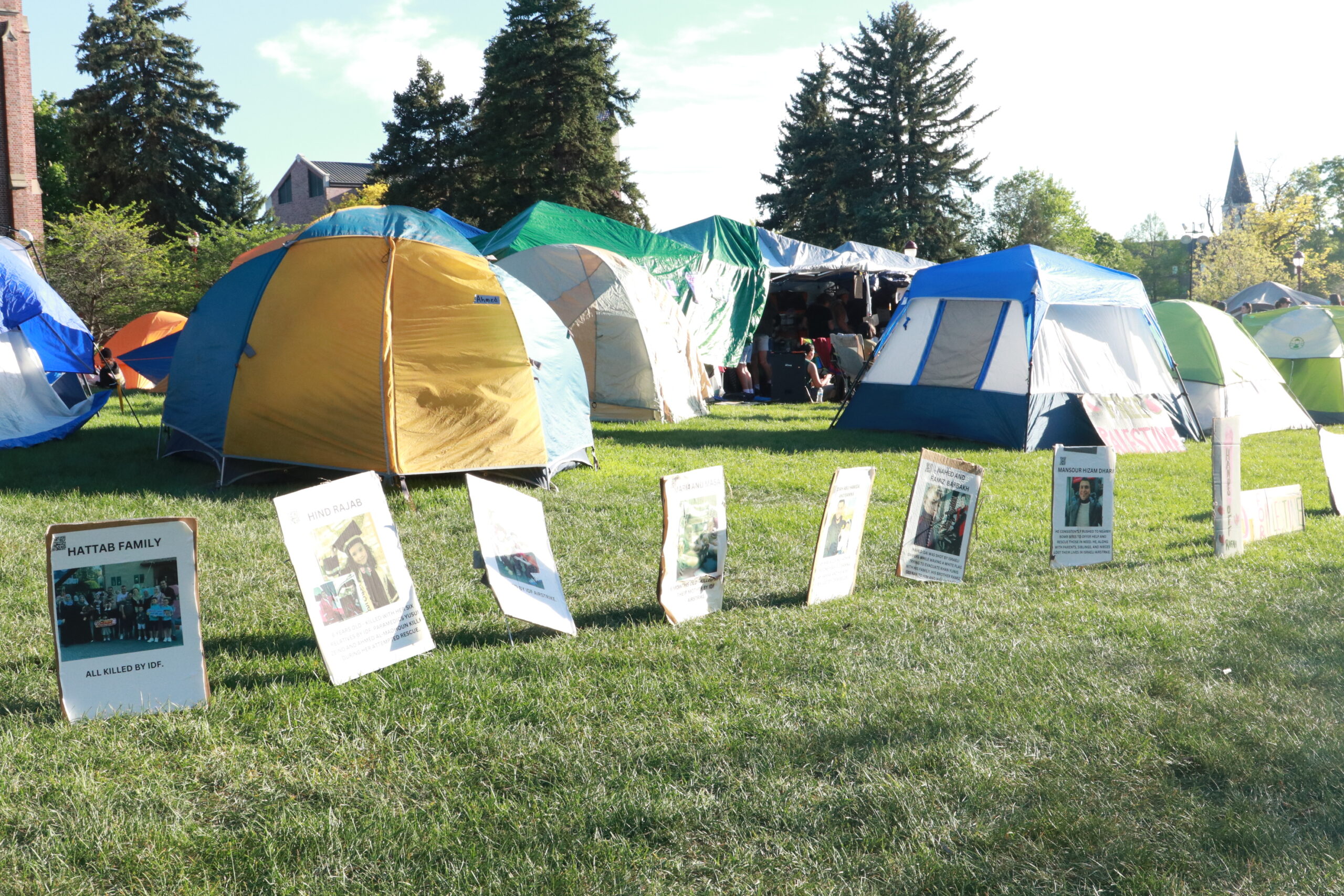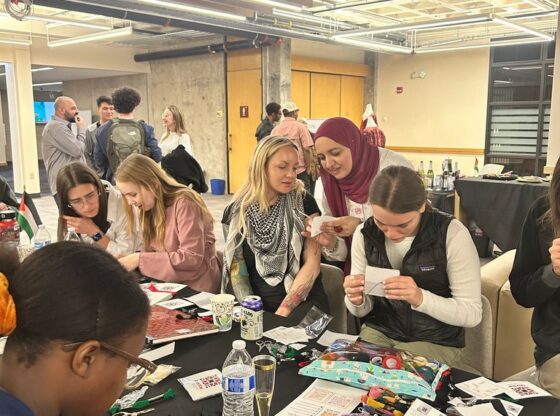Eight years ago, Ethan Zuckerman got really angry with The New York Times. He was working in Ghana, Africa, where democratic elections were being held, and the opposition party won.
He thought it should be a front page story in the U.S. The New York Times buried it in the paper a few days after the elections.
“[I thought] what would it take for Ghana to make the front page?” Zuckerman said.
That question motivated him to start Global Voices Online (GVO) in 2005, with the help of Rebecca MacKinnon, a journalist for CNN, and many others.
Last Thursday, GVO was presented with the Anvil of Freedom award at the “Globally Speaking” daylong event held by the Estlow International Center for Journalism and New Media Studies.
The award is given in recognition of those who show a commitment to democratic freedoms, ethics and integrity.It was the first time the Anvil was awarded to a group.
“Global Voices is really no more, no less than a community produced citizen newswire,” said Zuckerman in his acceptance speech on behalf of GVO.
He spoke to nearly 180 people about how GVO was established and the importance of helping maintain a global arena for free speech.
After The New York Times failed to adequately cover a story as Zuckerman saw it, he created a series of maps to analyze what newspapers pay attention to. What he discovered led him to start GVO.
“We pay attention to wealthy nations, and we pay attention to nations we are in conflict with,” Zuckerman said. We don’t pay attention to Nigeria. He started GVO as a blog hosted at the Berkman Center for Internet and Society at Harvard University.
Today, the Web site has more than 150 volunteer writers and translators and more than 20 freelance editors, who cover stories ranging from the recent fighting in Gaza to the wildfires in Australia.
The site allows bloggers to write in their own languages and write for their own audiences. Translators then work to translate the writing into 20 different languages for GVO.
Many of those volunteers are in their early twenties. Some of the best are still in high school, Zuckerman said.
“No one told these kids they were only supposed to care about their own country,” he said.
But GVO is working to open up the world and get people to care about what’s happening thousands of miles away.
“Enormous swaths of the world do not have a free press,” he said. “Countries that control speech offline have learned that they need to control speech online.”
With more than 100 million people publishing information online around the world, Zuckerman said the biggest concern is that they won’t be heard. That’s where GVO comes in.
“We have enormous responsibility as readers, we have enormous responsibility as citizens, to make sure we are listening to voices from around the world,” Zuckerman said. “The voices usually are out there. We just have to figure out how to listen.”
The Estlow International Center for Journalism and New Media was established at DU in 2000. It works to discover how traditional roles of journalism are being altered by the new online environment.
Conference attendees were also able to attend a number of breakout sessions about finding voices in a global context.
Visit GVO at globalvoicesonline.org.











